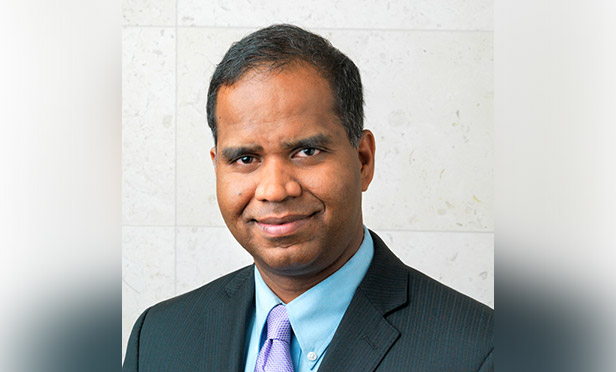
 Babu Sivadasan of Envestnet
Babu Sivadasan of Envestnet
Envestnet Inc. will introduce in September an app called Financial.fit that takes a gamification approach to monitoring and encouraging plan participants' overall financial health. Unlike some other such applications — for finances or physical exercise — Financial.fit will also give them the ability to take actions to achieve their goals.
Available for both Apple and Android devices, the app will be accessible to participants through their plan sponsor or through advisors.
Babu Sivadasan, Envestnet Retirement Solutions' group president, said in an interview that the app was designed to meet the evolving needs of clients as they age and their financial lives change. Envestnet's goal, he said, was to give plan participants at every stage of their employment "a companion that they carry on their phone through their employer or through their advisors. It's an app that becomes your wealth portal."
Sivadasan explains the value to plan sponsors, plan advisors and plan participants through a realistic visual metaphor. "Imagine an advisor coming into an enrollment meeting," he says, where all the participants load up the app on their phones and receive an experience "that's tailored to each of them." That tailoring is made possible by the app's use of several Envestnet assets, including some key acquisitions the company has made over the past few years:
- the data aggregation provided by acquisition Yodlee that gathers together each participant's financial accounts and provides the ability to analyze such areas as spending or saving patterns;
- the financial planning services offered through Envestnet's acquisition of Finance Logix;
- Envestnet's core capabilities of quarterbacking its own expertise in everything from serving retirement plan recordkeepers to providing access to a wide range of money managers. That in turn allows the now-more-educated plan participant to take actions to save or invest more strategically to meet their evolving needs and goals.
Plan participants throughout their working lives and into retirement are "always making tradeoffs," Sivadasan points out. In the early stages of a career, workers tend to be more focused on managing their debt, though they should also be "contributing to their 401(k) from day one," and looking to save money to build up an emergency fund of cash, even if it's only "30 buck or 50 bucks a month." That's because small actions early in a worker's career can lead to big results decades later.



